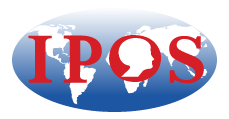Csaba Degi, Romania
The 17th World Congress of Psycho-Oncology and Psychosocial Academy in Washington DC was for me an intensive five day multidisciplinary platform for professional development and networking, and for active involvement in committee and international federation work, too. Yes, it was a truly historical meeting in many ways. The most significant professional and personal experience relates to the new IPOS standard - psychosocial care as a human right - discussed and endorsed in inspiring and highly practical panels. The IPOS mentoring lunch, advocacy talks and the federation meeting all created a memorable congress experience for me. For Romania, an underserved country regarding psycho-oncology training and services, it was a historical moment because the IPOS Multilingual Core Curriculum was officially launched in Romanian at this conference. It includes five webcasts in Romanian presented by the Romanian Association for Communication and Services in Oncology. This IPOS/APOS Congress also brought an ever-renewing and inclusive perspective on screening for distress and unmet communication needs in cancer patients. Finally, I did not forget to buy a copy of IPOS's Comfort Food Recipes Book and I just love it. And yes, Dr Holland signed it for me, just another historical moment.
Samantha Flynn, England
As an Early Career Professional, attending the World Congress of Psycho-Oncology in Washington, DC was an incomparable experience; with opportunities to network with world-class researchers, established and early career, both formally (i.e. the Mentoring Lunches) and informally through the course of the congress. The wide-ranging and engaging program at times made it difficult to decide which sessions to attend – which can never be considered a negative! For me, the most exciting sessions were those which invited me to consider areas and concepts outside that of my own work, particularly the suicide and cancer symposium which not only offered exceptional presentations, but also a stimulating dialogue from presenters and audience members alike – further highlighting the importance of this area. The plenaries were well-considered, and widely relevant, and I found the “Town Hall Meeting” regarding Palliative Care for Patients with Advanced Disease around the World to be insightful and inspiring, as was the Lunchtime Plenary on the subject of Patient Advocacy.
Whilst my work is niche, to say the least, the broader research presented throughout the congress offered unfamiliar and exciting concepts which sparked new interest and enabled me to consider my own research from new perspectives – this, in itself, was invaluable.
Carmen Loiselle, Canada
Overtime, various scholars have asked: ‘Why do people go to international conferences?’ Some even propose the following: roughly 50% curiosity and 50% vanity! Whereas the first seems definitely correct, when it comes to psychosocial oncology, the second seems far from the truth - I would say it is at least 50% engagement. In fact, the various advantages of attending this international conference year after year is the energy and inspiration that we get from the sense of generosity and community from the Chair, the organizing committee, board members and attendees who present state-of-the art initiatives from various parts of the world. In addition, the opportunity for face-to-face exchanges, exposure to the latest topics and methodology, and the sharing of new and exciting findings designate this conference as an essential event to attend.
The 2015 World Congress of Psycho-Oncology (a joint conference of IPOS and APOS) in Washington, DC went beyond these honorable goals through a thoughtful program design, productive breaks, planning of questions and answers opportunities throughout sessions, panels, symposiums, poster sessions and social gatherings. Yes, the cruise was a success in as much as the dance floor reached over capacity with attendees demonstrating amazing dancing skills! Moreover, the sumptuous views were breath taking.
The thought provoking keynote from Dr Patricia Ganz including the timely topic of precision medicine (once called personalized medicine) and its potential impact on psychosocial oncology as well as the various international presentations from European and Asian researchers and North American perspectives from Canada and the US - all converged to inform new research priorities and therefore served to enrich our field.
Hence, this conference infused me with new ideas, facilitated networking and connections with "old" colleagues, and inspired me to reach out to international research groups from countries that I have yet to visit. These most stimulating exchanges propelled me, when I returned, to write up a sabbatical request that included timely topics and new collaborators.
Once more, IPOS has succeeded in widening our scope and setting the stage for the discovery of new ideas, new colleagues and new friendships!
Sokhna Ndiaye, Senegal
Etymologically, in "Psycho-Oncology" the person comes before the cancer. Looking back on my very first World Congress in TURKEY, I remember being amazed by the discovery of this new world of knowledge and encounters with likeminded scientists. 2015's unique joined APOS/IPOS World Congress was a refreshing gathering of experts from all continents who have long understood one basic concept: we treat people, not a disease. The conference in Washington was loaded with top quality presentations but the pre-conference workshops are the greatest opportunity for smaller groups to get better acquainted and to participate in interactive sessions with international experts. The energy level was impressive when forty people laid on the floor to perform the body-scan together.
The highlight of 2015's Congress was the poignant and authentic "Dramatic Reading of Sophocles' Philoctetes". In this audience of cancer professionals, people were tearing up after the performance but we were flabbergasted by the life stories our invited panelists narrated. Everyone was touched in their humanity because suffering isn't foreign to any soul.
Hopefully, this makes us more empathetic, understanding and caring to our patients and their families. To quote the late Maya Angelou "We are more alike, my friends, than we are unalike".
